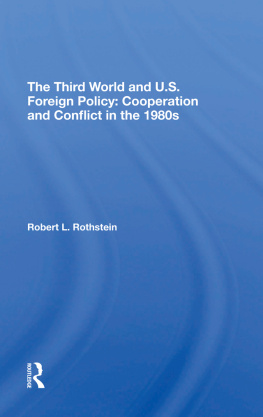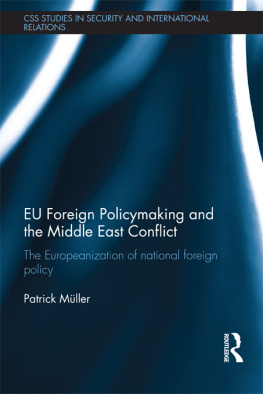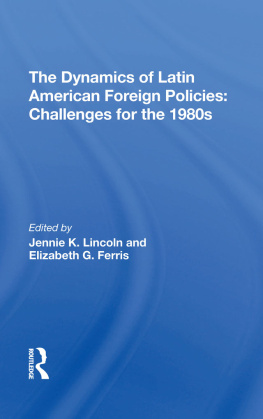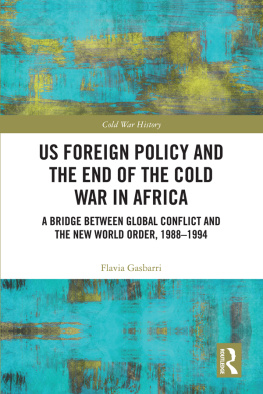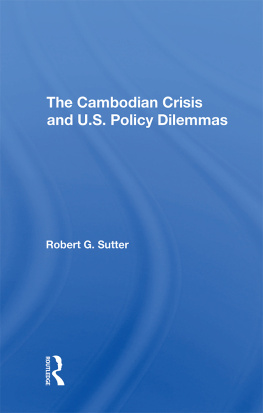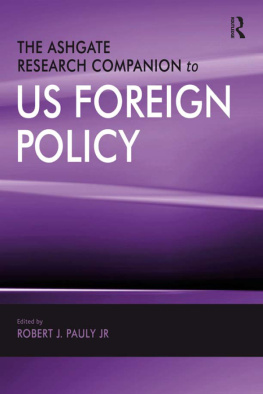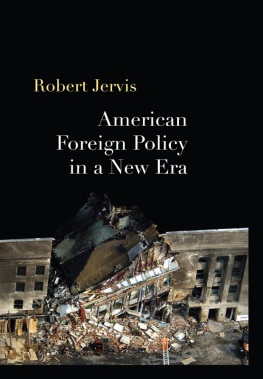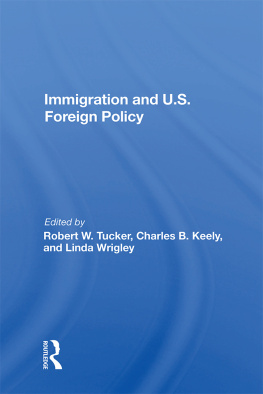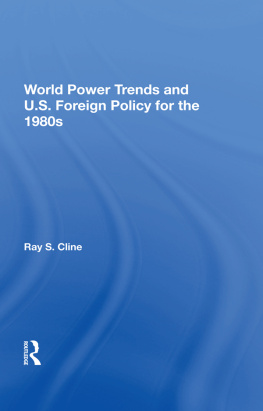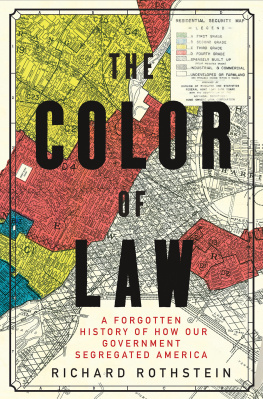The Third World and U.S. Foreign Policy
Also of Interest
U.S. Foreign Policy and the New International Economic Order: Negotiating Global Patterns, Robert K. Olson
New Directions in Development: A Study of U.S. AID, Donald R. Mickelwait, Charles F. Sweet, and Elliott R. Morss
U.S. Policy in International Institutions: Defining Reasonable Options in an Unreasonable World, Revised Edition, edited by Seymour Maxwell Fingar and Joseph R. Harbert
Global Human Rights: Public Policies, Comparative Measures, and NGO Strategies, edited by Ved P. Nanda, James R. Scarritt, and George W. Shepherd, Jr.
The Soviet Union in the Third World: Successes and Failures, edited by Robert H. Donaldson
Change in the International System, edited by Ole R. Holsti, Randolph M. Siverson, and Alexander L. George
The Challenge of the New International Economic Order, edited by Edwin P. Reubens
The New Economics of the Less Developed Countries: Changing Perceptions in the North-South Dialogue, edited by Nake Kamrany
From Dependency to Development: Strategies to Overcome Underdevelopment and Inequality, edited by Heraldo Muoz
Latin America, the United States, and the Inter-American System, edited by John D. Martz and Lars Schoultz
Available in hardcover and paperback.
Westview Special Studies in International Relations
The Third World and U.S. Foreign Policy: Cooperation and Conflict in the 1980s
Robert L. Rothstein
The quest for a viable policy toward the Third World will be a dominant theme in U.S. foreign policy throughout this decade. But before any judgments can be made about the range of choices for U.S. policymakers, it is necessary to understand the pressures that are likely to confront developing nations during the 1980s as well as the efforts of these nations as a group to extract greater resources and attention from the international system.
This book considers policy responses that have been and are likely to be implemented by developing nations as they face increasing pressures in the areas of food, energy, trade, and debt the main areas of interaction within the international system. The author also presents an analysis of how the North-South Dialogue functions and why it has produced so few genuine settlements, providing an additional perspective on whether the pressures on the developing countries might be diminished by successful global negotiations. The conclusions reached by examining policy responses and the Dialogue itself provide the basis for a number of specific policy prescriptions. They also help to establish a framework within which U.S. policy initiatives toward the Third World must be formed. The two concluding chapters discuss these policy choices in detail, carefully analyzing the advantages and disadvantages of persisting in present policies, attempting a genuine global restructuring, choosing to concentrate attention on a few "new influentials" in the Third World, and trying to construct a new approach out of selected elements of the other policy approaches.
Robert L. Rothstein has taught at Columbia University and Johns Hopkins University and has served as a consultant to the Department of State and other national and international organizations. He has also published four books, including Global Bargaining and The Weak in the World of the Strong.
First published 1981 by Westview Press
Published 2019 by Routledge
52 Vanderbilt Avenue, New York, NY 10017
2 Park Square, Milton Park, Abingdon, Oxon OX14 4RN
Routledge is an imprint of the Taylor & Francis Group, an informa business
Copyright 1981 by Taylor & Francis
All rights reserved. No part of this book may be reprinted or reproduced or utilised in any form or by any electronic, mechanical, or other means, now known or hereafter invented, including photocopying and recording, or in any information storage or retrieval system, without permission in writing from the publishers.
Notice:
Product or corporate names may be trademarks or registered trademarks, and are used only for identification and explanation without intent to infringe.
Library of Congress Cataloging in Publication Data
Rothstein, Robert L.
The Third World and U.S. foreign policy.
(Westview special studies in international relations)
Includes index.
1. United StatesForeign relations1945- . 2. Underdeveloped areas. I. Title.
II. Title: Cooperation and conflict in the 1980s. III. Series.
E840.R65 327.730172'4 81-4628
ISBN 0-86531-206-0 AACR2
ISBN 13: 978-0-367-29657-5 (hbk)
In the autumn of 1979 I was invited to participate in what was described as a "high-level" State Department seminar on U.S. policy toward the Third World in the 1980s. The discussion, perhaps inevitably, was very inconclusive and unsatisfying, not least because it seemed to lack any kind of analytic focus. In a concluding comment I argued that although we were all aware of the enormous uncertainties confronting the international system and the consequent dangers of any venture into forecasting, we could certainly do better than we had in the discussion (and indeed in much of the literature attempting to cover the same topic) in providing a framework and some guidelines for the attempt to choose effective policies. We needed also to remember that the choice of present policies already implicitly forecast a particular kind of future and that there might be some virtue in becoming more aware of the potential implications of those and otherchoices. It seemed to me that we could make some start toward providing framework and guidelines if we examined the likely impact of several crucial trends in food, energy, trade, and debt on the range of choices that would confront Third World governments and if we also attempted to understand (or speculate about) whether the adverse impact of those trends might be meliorated through agreements negotiated in the North-South Dialogue. At the very least, one would hope that an understanding of the likely evolution of key trends, the probable domestic responses of developing-country governments, and the likely development of the international policymaking process in the Dialogue would provide some sense of the environment of choice for U.S. policymakers. Only then could we sensibly begin to weigh the pros and cons of particular choices. There were a variety of responses to my comments, but in the present context one was especially crucial: Would I prepare a study (with roughly a one-year deadline) attempting to do what I had argued needed to be done? I agreed to try, even though I was fully and painfully aware that a team of experts might be a more appropriate choice. But I also felt that an integrated approach by one analyst might have some advantages over a corporate approach, and I was intrigued by the notion that I at least would learn a great deal. This book is the outcome.
A number of limitations were imperative to make my task manageable. In the first place, this is obviously meant to be a policy-oriented book, that is, a book written for a loosely defined "foreign policy community" and not primarily for a conventional academic audience or for experts in one or another of the functional areas considered. Needless to say, however, I hope that the latter groups will find something of interest in what follows, perhaps especially in terms of the interconnection between issues and the foreign policy implications that emerge. In the second place, I have provided at best a partial picture of the factors that would need to be considered in the policy process. My analysis is largely (though not exclusively) aggregative, I have concentrated primarily on interactions with the external environment and on the implications of external developments for domestic choices, and I have generally avoided discussion of the political, security, and ideological issues that would require consideration in choosing policies toward particular countries. In short, this is a study of the political economy of U.S. relations with the Third World, and not of the totality of our relationship with either individual developing countries or the Third World as a whole. This seems justified or necessary not only because of limitations on my time, knowledge, and resources, but also because the external economic environment the international political economy seems likely to become increasingly crucial, especially if that environment becomes more hostile and less charitable and many developing countries become desperate supplicants for very scarce external resources.


